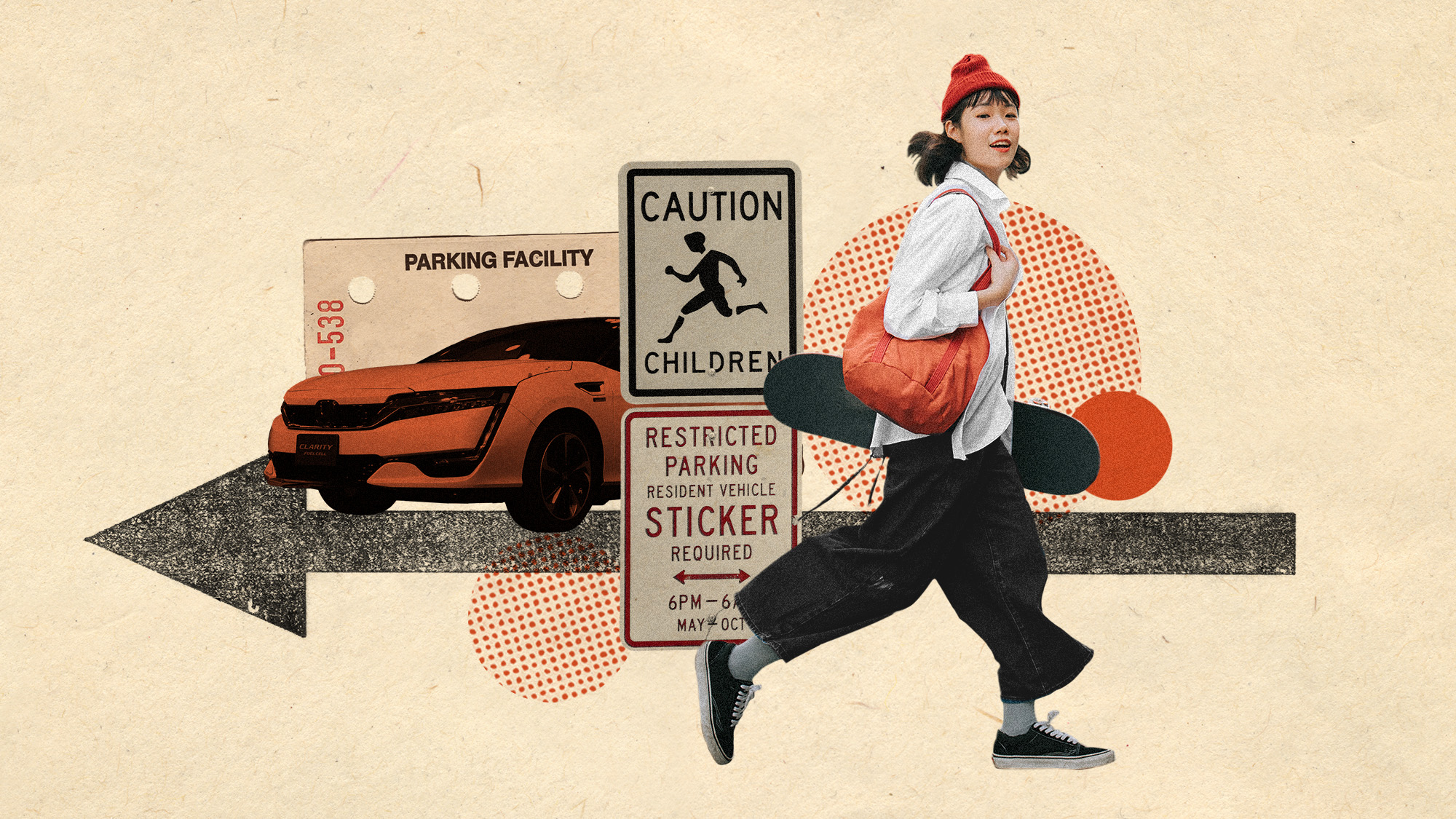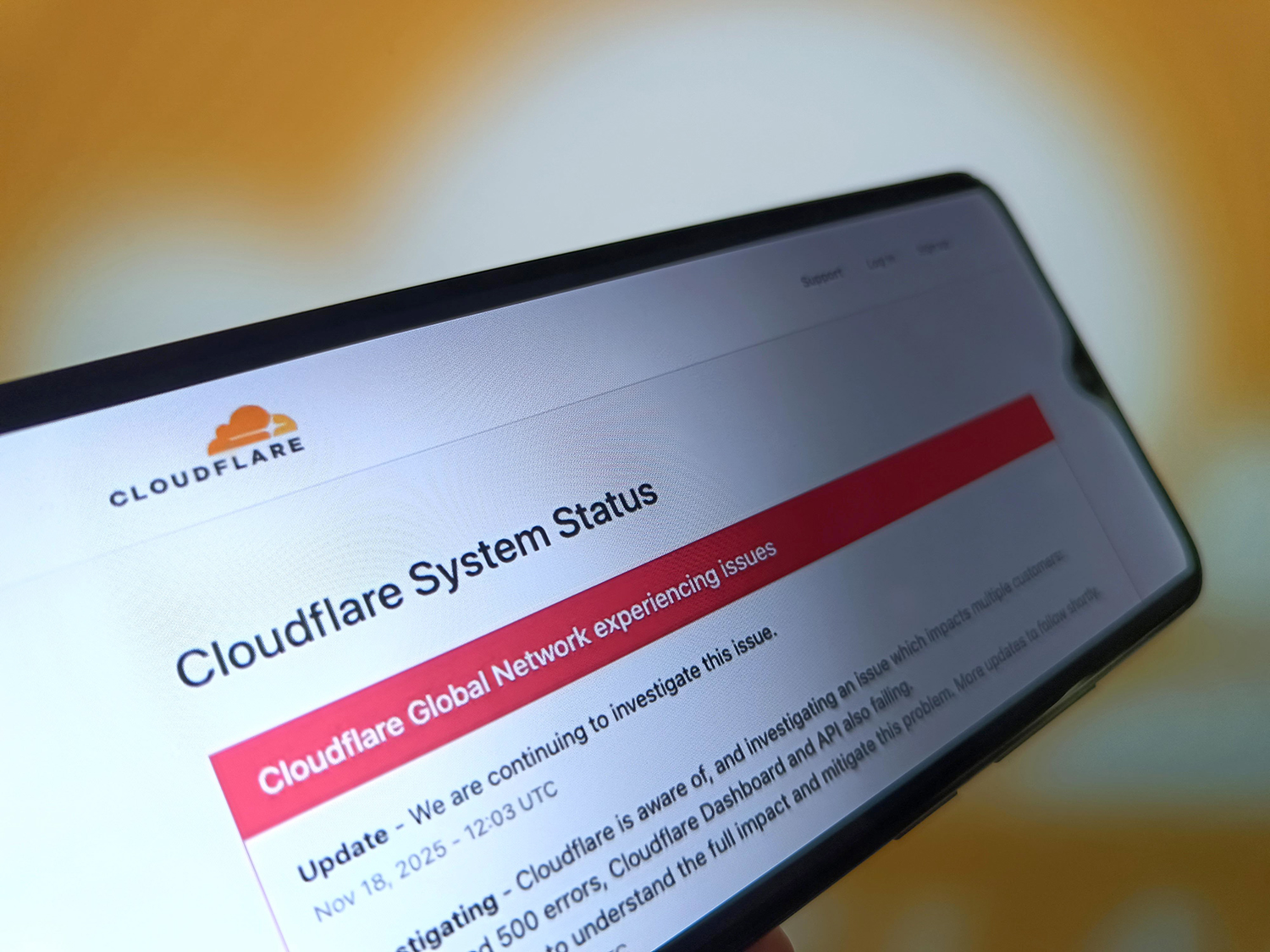Gen Z doesn't want cars
Olivia Rodrigo may have been excited to get her driver's license, but many young people are less enthused by car culture


A free daily email with the biggest news stories of the day – and the best features from TheWeek.com
You are now subscribed
Your newsletter sign-up was successful
Driving has been an essential part of American culture since cars were invented. It makes sense: Our country is 3,000 miles wide, and a car is needed to traverse it. Longing for freedom, teens squirreled away their pennies to afford their first vehicle; spirit-questing twenty-somethings road-tripped across the country; retired couples saw the sights in weathered RVs. Olivia Rodrigo launched her music career with 2021's "Driver's License," a record-breaking single about the quintessential experience of driving past your crush's house.
But young Americans may be falling out of love with cars. "Polls, studies and surveys show younger generations are less likely to drive, less likely to have a driver's license, have less access to vehicles, and when they do get behind the wheel, are driving fewer miles," said Business Insider last year. The percentage of U.S. teen drivers has consistently dropped since the 1990s. In our car-dependent country, with just a handful of cities boasting reliable public transportation, this driving rejection may come as a surprise. But should it?
Why young people don't want to drive
To begin with, driving is dangerous. Fatal crashes are increasing and have become the leading cause of death in the United States for people ages 1 to 54. "From 2018 to 2022, the number of deadly accidents in the United States increased by more than 16%," said USA Today. The risk is particularly pronounced for anyone who is not an average-sized male: "Car safety features like seat belts, airbags and dashboards were created to best fit the size of an average man in the 1970s," said The Nation, citing reporting from The New York Times.
The Week
Escape your echo chamber. Get the facts behind the news, plus analysis from multiple perspectives.

Sign up for The Week's Free Newsletters
From our morning news briefing to a weekly Good News Newsletter, get the best of The Week delivered directly to your inbox.
From our morning news briefing to a weekly Good News Newsletter, get the best of The Week delivered directly to your inbox.
Cars are also very expensive when you add up the necessary costs to buy, maintain and fuel them. Auto insurance rates have gone up and gas prices are often high. "For a generation already burdened with debt, the bus or ride-sharing might seem like a better option," said Kafui Attoh, a professor at the City University of New York School of Labor and Urban Studies, to The Nation.
Gen Z is more environmentally conscious than generations past, and many don't want to exacerbate the climate crisis by driving. "Highway vehicles release about 1.5 billion tons of greenhouse gases into the atmosphere each year," said the U.S. Department of Energy. "Cars and trucks contribute to nearly 20 percent of all greenhouse gas emissions in the United States," added The Nation. "For many young people, the desire for a healthy planet and future can outweigh the appeal of an automobile."
Walkable cities and public transit
Young people seem to crave more good-for-the-planet transportation methods. Electric vehicles, or EVs, may be a common alternative; in a 2023 McKinsey survey, half of European Gen Z consumers said their next vehicle purchase would be an EV. However, this solution might not be enough. "Electric vehicles do not seem to be the catch-all climate solution they are often touted as, with the lithium required for their operation creating a demand for increased mining in already vulnerable environments," said The Nation.
Many Gen Zers have also lamented America's lack of walkable cities. According to a 2023 survey by the National Association of Realtors, younger U.S. homebuyers "prioritize walkability the most, with 90% of Gen Z and millennial respondents indicating they'd pay more for a home in a walkable community," said an article in Realtor Magazine with details of the survey.
A free daily email with the biggest news stories of the day – and the best features from TheWeek.com
Young people tend to make use of public transit when it's available, but policy shifts are needed to expand these options. "Reducing the need for car travel is better for health, the environment and public safety," said an opinion piece in Scientific American. Cities could "invest in better public transit, including subways and buses with dependable, on-time service" as well as "change zoning laws to allow denser housing … so people can live closer to where they work, attend school or socialize."
Most Americans are still buying cars for now. They are just waiting until later than previous generations to do it. "In 2020, millennials bought more cars than any other demographic in the U.S.," said Business Insider. A potential explanation: Driven out of cities by high rent prices, millennials are moving to sprawling suburbs, where cars are imperative. Daniel Knowles, the author of "Carmageddon: How Cars Make Life Worse and What To Do About It," put it simply: "The turn away from cars is a little like the turn away from marriage and having children. People are waiting much longer to do it, but they are ultimately still doing it."
Anya Jaremko-Greenwold has worked as a story editor at The Week since 2024. She previously worked at FLOOD Magazine, Woman's World, First for Women, DGO Magazine and BOMB Magazine. Anya's culture writing has appeared in The Atlantic, Jezebel, Vice and the Los Angeles Review of Books, among others.
-
 Political cartoons for February 15
Political cartoons for February 15Cartoons Sunday's political cartoons include political ventriloquism, Europe in the middle, and more
-
 The broken water companies failing England and Wales
The broken water companies failing England and WalesExplainer With rising bills, deteriorating river health and a lack of investment, regulators face an uphill battle to stabilise the industry
-
 A thrilling foodie city in northern Japan
A thrilling foodie city in northern JapanThe Week Recommends The food scene here is ‘unspoilt’ and ‘fun’
-
 TikTok finalizes deal creating US version
TikTok finalizes deal creating US versionSpeed Read The deal comes after tense back-and-forth negotiations
-
 Data centers could soon be orbiting in space
Data centers could soon be orbiting in spaceUnder the radar The AI revolution is going cosmic
-
 AI griefbots create a computerized afterlife
AI griefbots create a computerized afterlifeUnder the Radar Some say the machines help people mourn; others are skeptical
-
 Separating the real from the fake: tips for spotting AI slop
Separating the real from the fake: tips for spotting AI slopThe Week Recommends Advanced AI may have made slop videos harder to spot, but experts say it’s still possible to detect them
-
 Inside a Black community’s fight against Elon Musk’s supercomputer
Inside a Black community’s fight against Elon Musk’s supercomputerUnder the radar Pollution from Colossal looms over a small Southern town, potentially exacerbating health concerns
-
 Blackouts: Why the internet keeps breaking
Blackouts: Why the internet keeps breakingfeature Cloudflare was the latest in a string of outages
-
 Spiralism is the new cult AI users are falling into
Spiralism is the new cult AI users are falling intoUnder the radar Technology is taking a turn
-
 X update unveils foreign MAGA boosters
X update unveils foreign MAGA boostersSpeed Read The accounts were located in Russia and Nigeria, among other countries
